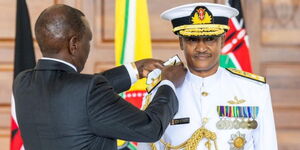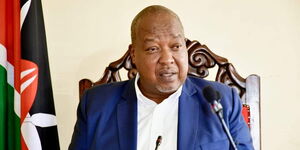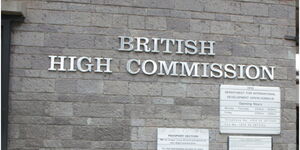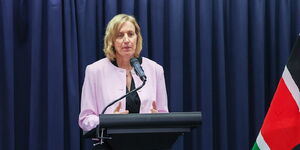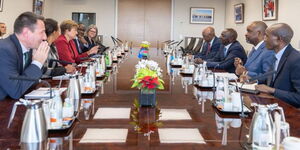The African Union Commission (AUC) has called for dialogue over the decision by the Donald Trump administration to ban nationals of seven African countries from entering the US.
President Trump banned citizens of Chad, the Republic of the Congo, Equatorial Guinea, Eritrea, Libya, Somalia, and Sudan from travelling to America, citing risks from terrorism and the prevalence of visa overstays.
From 9 June, these citizens will not be allowed to travel to the US, and they are part of a 12-strong list of countries worldwide facing the same measure.
The African Union Commission has stepped in with a plea to the United States following a controversial decision to ban nationals from seven African countries from entering the U.S.
On Thursday, June 5, the AUC issued a statement, warning that such a ban could have far-reaching implications, which the commission says could potentially damage decades of nurtured relations between Africa and the US.
“The African Union Commission has taken note of the recent proclamation by the Government of the United States imposing new travel restrictions affecting nationals from several countries, including some on the African continent,” the statement read.
But the AU, in a rejoinder, suggested that this move was a bit too extreme, urging the U.S to reconsider the ban.
The AUC's statement added, "While recognising the sovereign right of all nations to protect their borders and ensure the security of their citizens, the African Union Commission respectfully appeals to the United States to exercise this right in a manner that is balanced, evidence-based, and reflective of the long-standing partnership between the United States and Africa."
Among the African countries targeted by the ban are Libya, Somalia, Sudan, Chad, the Republic of the Congo, Equatorial Guinea and Eritrea. Burundi, Sierra Leone and Togo also make the list but they have been slapped with partial restrictions.
The AUC warned that such a ban could lead to several implications, including disruption of educational exchanges, trade relations, and diplomatic engagement.
Trump had earlier posted a video on Truth, citing a recent terror attack in Boulder, Colorado as an incident which underscored the dangers posed to the U.S by the entry of foreign nationals who are inadequately vetted.
In the AUC's statement, the commission called for a more diplomatic approach, urging the U.S government embrace a framework which was rooted in dialogue.
As far as the ban is concerned, Kenya is not off the hook yet, as Trump insists the list could be revised and new countries could be added. Some US senators have been on a warpath with Kenya, pointing to the growing dalliance with China as a problem.
The voices, largely from the chairman of the Senate Foreign Relations Committee, Senator Jim Risch, have called for a reassessment of the relationship between Kenya and the US.
In March 2024, Kenyans seeking to travel to the U.S were put on high alert after Trump revised directives on U.S. visa and Green Card applications. Under the directive, applicants for Green Cards will be required to disclose their social media history as part of a strict vetting process.


